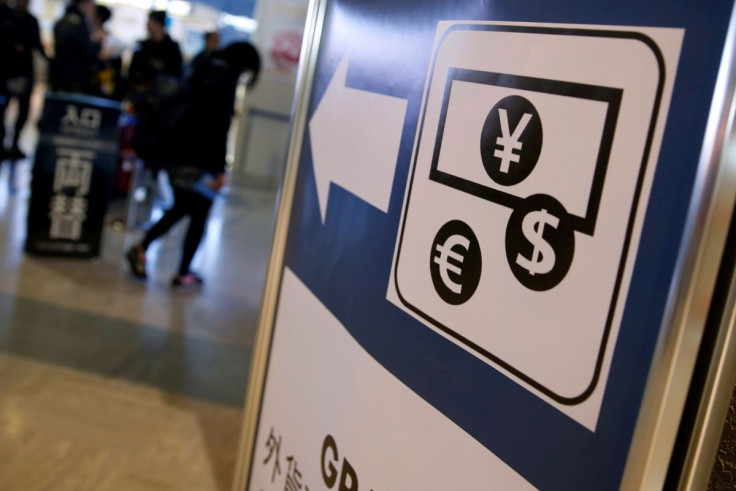Yen Kicks Off Another Week Under Pressure, With Central Bank Policy In Focus

The Japanese yen continued its slide on Monday morning, while the aussie and kiwi remained bid, with traders eying a string of public remarks by global central bank policy makers this week, including Fed chair Jay Powell later Monday.
The dollar climbed slightly on the yen to as much as 119.3 yen challenging the six-year peak of 119.39 touched on Friday. The dollar finished last week 1.6% higher versus the Japanese currency.
Analysts at CBA said they thought moves in the pair could slow this week, but they predict the dollar will climb further on the yen in the coming months as the gap between U.S. and Japanese interest rates widens.
"Japan's inflation dynamic is very different to that experienced in other major economies we monitor, As a result, an exit from the ultra-easy monetary policy by the Bank of Japan remains a long way off in our view," they said.
In contrast, the U.S. Federal Reserves raised its key interest rate by 25 basis points last week for the first time since the pandemic.
Traders' focus is now firmly on the speed and size of future rate hikes and the height of their eventual peak, as policy makers try to curb soaring inflation.
A series of speeches by Fed policy makers this week, kicked off by remarks by Powell on Monday, could provide some clues.
Markets anticipate further rate increases at the Fed's subsequent meetings, with pricing indicating nearly a 90% chance of at least 75 basis points of increases across the Fed's May and June meetings, according to the CME's Fedwatch tool.
Such high expectations helped the dollar climb steadily in the early part of this year, but with many Fed increases already priced in, it could struggle to gain much more further, analysts say.
"Given already-hawkish market expectations of Fed tightening, it is hard to foresee USD strength persisting beyond the near term," said analysts at Barclays.
The dollar index, which measures the greenback against six peers, was steady at 98.270.
The yen was also at a four-year low against the rampant Australian dollar, which has benefited from rising commodity prices.
Versus the U.S. dollar, the Aussie was at $0.7414 after gaining 1.7% last week. Barclays analysts said they anticipated further gains as the Fed's hiking cycle is now priced in, and because of the ongoing recovery in global risk sentiment, which would typically support risk friendly currencies.
The New Zealand dollar was at $0.6909, gearing up to challenge the near four-month high of $0.6926 hit earlier this month.
The euro was at $1.1044 and sterling at $1.3158 with the future direction of both dependent on the war in Ukraine, which has hurt expectations of European economic growth.
In the short term, speeches by several policy markers at the European Central Bank, including president Christine Lagarde, could also play a role.
Fighting is continuing to rage, in the eastern European country. Ukraine said there is no question of surrendering the city of Mariupol after Russia called on Ukrainian forces on Sunday to lay down arms in the besieged port city.
In cryptocurrency markets major coins were struggling to find a firm direction. Bitcoin was at $41,300 and ether $2,860.
© Copyright Thomson Reuters 2024. All rights reserved.




















